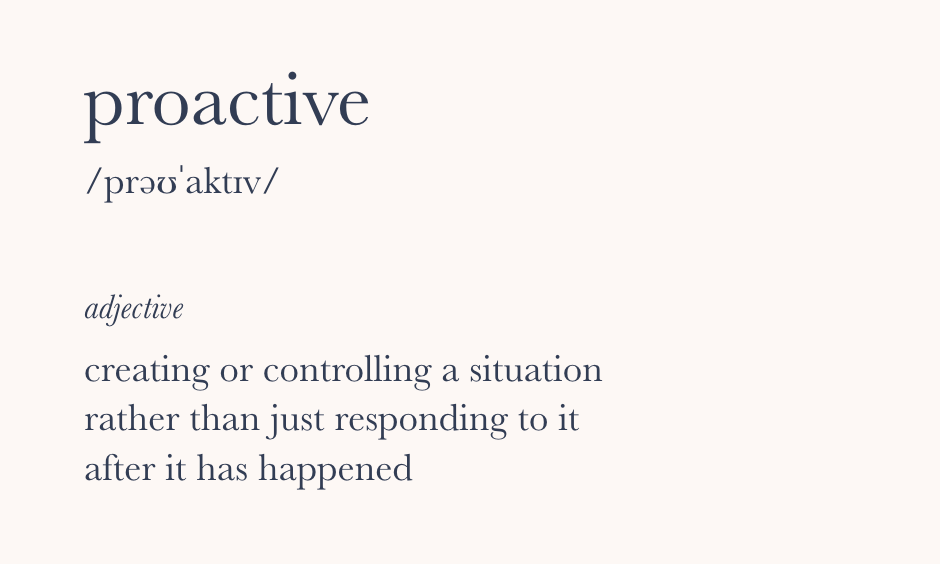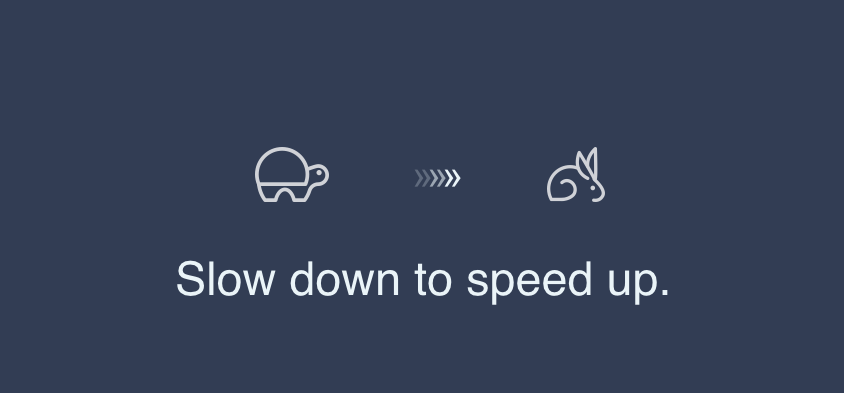CEO’s Insight: Transforming the Way We Work [Video]
Fred Krieger is the Founder & CEO of Scoro, the all-in-one business management software that helps agencies and professional service companies to work smarter, not harder. Besides being a successful leader in the tech world, Fred Krieger has also been an award-winning music producer and songwriter for more than 20 years. He has always been inspired to find ways to be more productive and work more efficiently.
Just recently, he gave a very inspiring talk on the main stage of ad:tech London 2019 in front of a large crowd. He shared insights on how to regain control and align your whole team by working proactively and as a result, save time, energy and money. Don’t miss your chance to watch it now:
6 key takeaways:
- Disable all notifications;
- Track time, review and reflect;
- Establish checklists;
- Use pre-meeting minutes;
- Appoint a Chief Time Officer;
- Keep improving your systems and data.
Reactive vs Proactive
When we talk about being reactive, a dog with a Frisbee is a perfect analogy. Dogs rely solely on instincts and reflexes. You throw them a bone, and they will run after it. You throw them a Frisbee, and they immediately catch it. Sadly, we as humans have become reactive as well – not physically but mentally. It only takes a split second or one notification to break our focus.
Being proactive, on the other hand, is more complicated. When you type in ‘proactive’, many images show up, all symbolizing ‘proactive’. To truly understand the core meaning of proactive, we should look at the definition:

But how can we create and control situations at the age of information overload?
With massive backlogs of tasks, crazy deadlines and ever-growing expectation to work faster, the only solution seems to be to speed up. You may be surprised, but this might be rather far from the truth. And there is a smarter way. The following 5 tips will give a much better idea on how to transform the way we work and as a result, save time, energy and money.
1. Slow Down to Speed Up

Although it seems counterintuitive, to speed up, you need to slow down first. It is necessary to slow down and get out of a downward spiral of constant firefighting and multitasking. Otherwise, we will never have the required time, attention and energy to accomplish what truly matters. Instead, we will always be working on the latest and the loudest.
“The latest & loudest thing in your psyche is seldom the most important thing that should take up residence there.” – David Allen, author
2. Eliminate Interruptions
Is it even possible to work on what matters if we are continuously interrupted at work? According to Jonathan Spira, the author of “Overload! How Too Much Information is Hazardous to Your Organization”, interruptions can eat up 28 billion wasted hours a year. Further, there is a growing body of research which reveals that we are interrupted every 3-7 minutes.
Bear in mind these interruptions are not only digital. It is necessary to factor in the physical interruptions when our coworkers ask for our time.
Read on: Workplace Chat Is Killing Our Productivity
Weapons of Mass Distraction
Gloria Mark of the University of California, Irvine, who has studied digital distractions says that we need up to 25 minutes to get back on track to the moment before we were interrupted. Being interrupted also triples the rate we make mistakes, and it causes exhaustion much quicker. Furthermore, interruptions are also said to be:
- Productivity killers;
- Significant energy suckers;
- Work satisfaction destroyers.
Therefore, eliminating interruptions is not only about time and being more efficient, but also about our physical and mental well-being. So be mindful of your time. Schedule your focus time and block it out in your calendar. Better yet, if possible, schedule focus days. Thus far, these days have proven to be very productive for our team in Scoro.
Read on: 5 Easy Ways to Boost Your Team Performance Immediately
Last but not least, turn off any notifications because ignoring them doesn’t work. Even if you choose not to react immediately, then the right kind of interruption can completely wipe our brain in 30 seconds.
Everything about your business, one click away
3. Shift in Behavior
There are 3 types of work we can do at any given moment:
- Doing pre-planned things (proactive)
- Solving ad-hoc problems (reactive)
- Planning for the future (proactive)
Doing Pre-planned Things
Doing pre-planned things is a perfect example of working proactively. Regardless, there are some instances when it isn’t considered proactive.
Consider going to a meeting unprepared. Instead of focusing on solving problems, we are wasting time on gathering all the information. To turn it around and make your meetings more fruitful, use pre-meeting minutes to write down all the relevant information for that specific meeting.
Solving Ad-hoc Problems
Easy to categorize this as a reactive work, but with a few simple changes, you can turn it around and make it proactive.
- As mentioned earlier, schedule office hours for unexpected problems and helping out your teammates. This is closely related to the next change as well.
- Stop switching between tasks and start batching them. For example, instead of checking your emails 15 times a day or reacting to every incoming email, block some time to do it all at once. Whether it’s once a day or 5 times naturally depends on the nature of your role.
Planning for the Future
We don’t have any excuses to make decisions on incomplete information and gut-feeling anymore. Especially now that we have access to data and different software bringing all the information together into one place. Therefore, when planning for the future, be data-driven, review and reflect on the past results and analyze the results.
4. Appoint a Chief Time Officer

We can’t overestimate the value of time. For agencies and consulting services, time is in direct correlation with the money we spend. Regardless, a lot of us still choose to be shallow about it.
In Scoro, we believe in the value of time so much that we coined the phrase ‘Chief Time Officer’. And we advise every company to appoint one. But what exactly falls under the job description of a Chief Time Officer? We believe that this person would:
- Know where the time goes collectively;
- Ensure that our time is spent wisely;
- Be responsible for removing time wasters;
- Make sure we avoid firefighting.
5. Attention to Detail ≠ Micromanagement
Majority of business books state that we should avoid micromanagement at any cost. And this is a great piece of advice until we start mixing up “attention to detail” and “micromanagement”.
The truth is that every successful company is based on systems, but most people just don’t think systematically. And that is the role of the manager – to help their team to think about their work more systematically. While introducing systems can be a daunting task, there are examples of simple systems, such as checklists.
There is a thin line between micromanagement and attention to detail. And while we should avoid the former to a certain extent, there are some aspects of our work that should be “micromanaged”. Let’s call this proactive micromanagement.
Proactive Micromanagement
What it means is that we shouldn’t micromanage people, situations and projects. However, systems, quality, and training our employees are things that should be micromanaged.
We shouldn’t confuse being busy with being productive. Because at the end of the day, only the latter will give you a sense of accomplishment while being busy will just exhaust you.
Lastly, urgent is not always important. Imagine a situation when you receive a Slack message from your colleague. Regardless of what you were working on, this will become the highest priority. And while it can be important to them, it might not be a priority to you.
About Scoro
Scoro is a business management platform helping professional service companies manage their work more efficiently. It combines project management, CRM, billing, and reporting – all in one place. Scoro has been listed in the Technology Fast 50 list by Deloitte, in the Inc. 5000 list, and has been selected as one of the top software companies in EMEA by G2.
In case you have any questions – feel free to reach out! You can also take a tour of the software with a 14-day free trial.
Read on:


